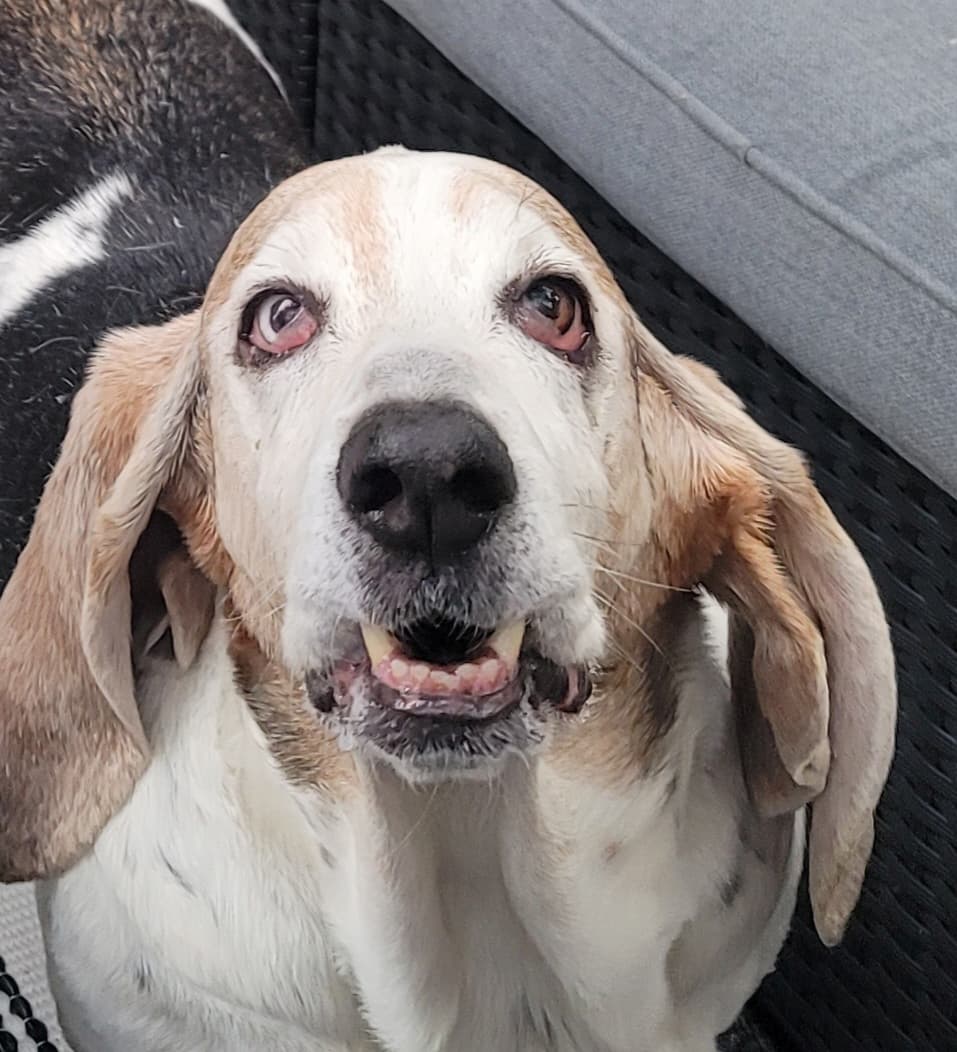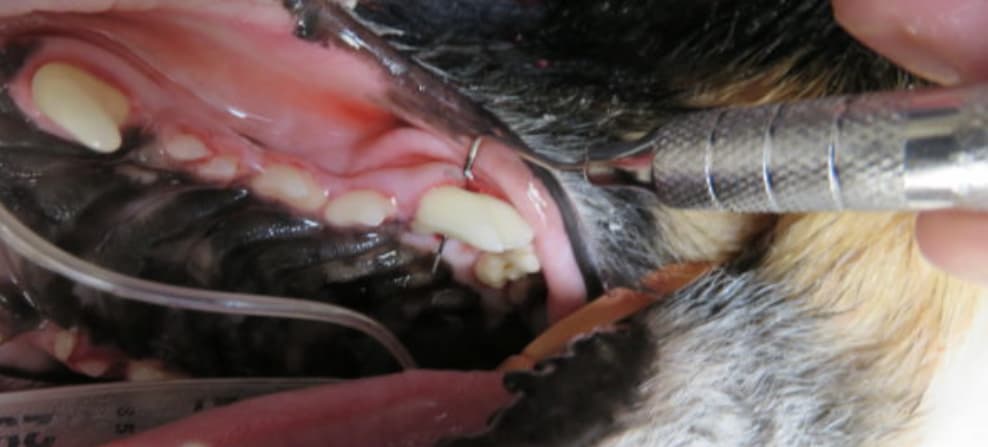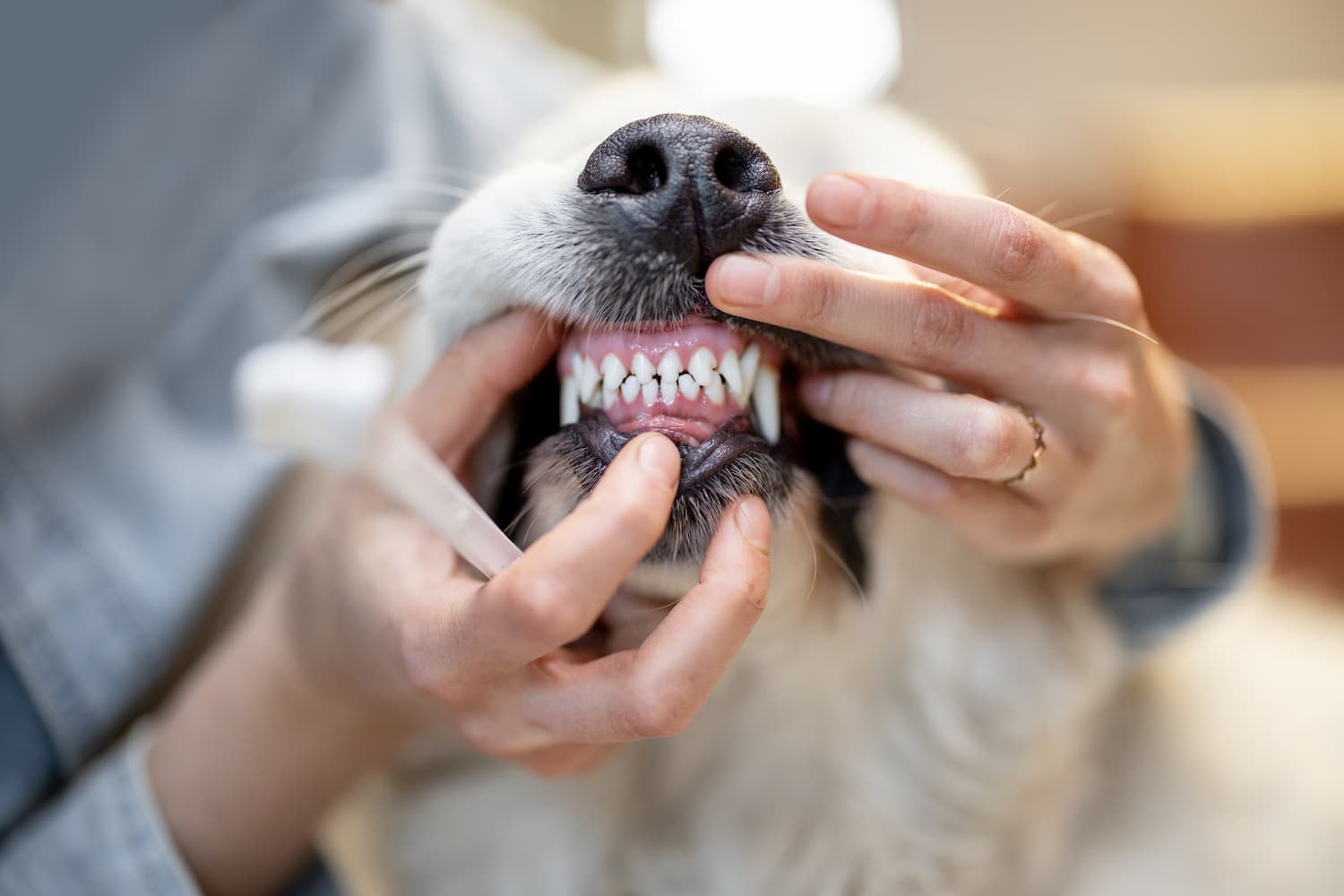At Lake County Veterinary Clinic in Two Harbors, we understand the critical role dental health plays in your pet’s overall well-being. Our professional dental cleanings and general dental care services ensure your pet’s oral health is well-maintained and free from disease.
Dental Care offered at Lake County Veterinary Clinics
Our clinic offers routine dental cleanings and advisement on at-home dental care to help maintain your pet’s oral hygiene and prevent dental diseases. Regular dental check-ups and cleanings can prevent serious health issues, ensuring your pet leads a healthy and comfortable life. We recommend annual dental exams to verify healthy gums and teeth. Regular dental exams and maintenance support a healthy mouth and prevent pain, discomfort, and other health issues.
General Dental Services We Offer:
- Oral Health Wellness Checks: Comprehensive evaluations to detect and treat dental issues early.
- Routine Dental Cleanings and Polishings: Thorough cleanings to remove plaque and tartar buildup and polishing to smooth the teeth’s surface.
- Fillings and Tooth Repair: Safe and effective repair of damaged or decayed teeth.
- Tooth Extractions and Oral Surgery: Safe removal of damaged or diseased teeth and surgical interventions when necessary.
- Cutting-Edge Digital Dental Radiology: Advanced imaging to diagnose your pet’s dental needs accurately.

Advanced Dental Care with Dr. Grace Brown
While Lake County Veterinary Clinics provide essential dental care services, we also house Minnesota Veterinary Dental Specialists at our Two Harbors location for more complex dental issues. Dr. Grace Brown, a Board-Certified Veterinary Dentist™, specializes in advanced dentistry and oral surgery for animals. Dr. Brown received her undergraduate degree in 2010 from the University of Minnesota Duluth with a Bachelor of Science in Biology. She graduated with her Doctor of Veterinary Medicine degree from Ross University School of Veterinary Medicine in September 2015. She completed her clinical training at the University of Minnesota Veterinary Medical Center.

Advanced Dental Services We Offer
- Orthodontics
- Periodontics
- Endodontics
- Malocclusion Correction
- Oronasal Fistulass
- Jaw Fractures and Oral Trauma
- And more! New website coming soon. Please check back.


Why is good dental care important for your pet?
We know that your pet will benefit from good health the same way that you do; they will live longer, be more active and happy, and have a better quality of life. People who care about their pets understand this and are looking for the benefits of good veterinary care. Human dentistry developed as a distinct field of medicine to provide both preventive and problem-specific care. Anyone who knows the intense misery of a dental problem from a “toothache” or infected gums will tell you how desperate they were for relief from their pain, and how much they wished for a dentist to help them immediately. Vaccinations, good nutrition, parasite control, and advances in veterinary care are allowing pets to live many times longer than a dog, cat, horse, pet rabbit, or rodent living in the wild. Along with this longevity, the wide variety of breeds has contributed to the development of a number of dental diseases and problems.
The primary goals of veterinary dentistry are to have a pain-free comfortable mouth with normal function. Most pets are stoic and do not show pain therefore, the pain is often hidden. You can tell your dentist when your tooth hurts, but your pet can’t.
The most common symptoms of oral pain in a pet are increased mouth odor, otherwise known as “bad breath”, loss of playfulness, and increased sleeping to “get away” from the pain. Many pets show reluctance to eat dry food or chew treats they once enjoyed. Your pet will commonly act “old” when they have a painful mouth. Determining if the pet’s pain is related to the teeth and providing treatment will give your pet a new quality of life.
The most common health problem in dogs and cats is periodontal disease. This chronic infection of the gum tissue and jawbone commonly results in abscessed teeth that will have a “domino effect” on nearby teeth. Just like for our good oral health, your pet needs good home dental care, appropriate diet and treats, and regular care by your pet’s dental professional to help prevent periodontal disease. Twice yearly dental examinations by your veterinarian can detect problems early. Professional dental cleanings with full mouth dental x-rays are necessary as 60% of the tooth is located under the gumline. These are performed to assist in periodontal therapy if needed. Small dogs are much more commonly affected and seriously impacted by this hidden chronic infectious disease. Many pets suffer and lose teeth unnecessarily to this disease because regular preventive care gets “put off” until the future.
Good dental care impacts your pet’s overall health.
Dogs commonly suffer from fractured (broken) teeth that become infected, abscessed, and create chronic misery. Dogs break teeth by chewing or picking up hard objects including rocks, bones, metal objects, or nylon chew toys. Never let your dog chew on an object unless it is soft enough for you to bend it in your hands. There are only two ways to treat broken teeth to prevent them from developing tooth root abscesses in the jawbone. They can be saved with surgery or need to be extracted completely. Not providing care for these broken teeth results in lifelong pain for your pet.
Cats commonly develop resorptive lesions (a kind of cat cavity) that are very painful. Between 25% to 33% of all cats suffer silently from these hidden problems. Research has yet to find the cause of, or the way to prevent, these miserable lesions. Teeth that are affected by resorptive lesions need to be surgically removed to stop the pain.
Horses, rabbits, and rodents develop a unique set of dental problems due to the continuous growth, and uneven wear of their teeth. Care provided by a knowledgeable professional can vastly improve their quality of life and longevity.
Good dental care for your pet is a joint responsibility between you and your veterinarian. Daily home dental care, appropriate foods, and chew treats can help your pet at home. Your pet will need regular examinations and professional dental care when necessary to help prevent years of silent suffering with hidden chronic dental disease. Your pet will live years longer, have a happy life, and will return your love with big, wet, sweet-non-smelling kisses!
Frequently Asked Questions
Our FAQ section aims to provide you with quick and helpful answers to common questions about our dental services. Whether you’re considering a routine cleaning or need advanced dental care, you’ll find valuable insights here.
Why is professional dental cleaning important for my pet?
Professional dental cleanings help prevent periodontal disease, tooth decay, and other oral health issues, ensuring your pet’s overall health and comfort.
How often should my pet have their teeth professionally cleaned?
We recommend annual dental cleanings for most pets, but some may require more frequent cleanings based on their individual health needs.
What are the signs of dental problems in pets?
Signs include bad breath, difficulty eating, drooling, pawing at the mouth, and visible tartar buildup. If you notice any of these signs, schedule a dental check-up.
What advanced dental services are available for my pet?
At Minnesota Veterinary Dental Specialists, we offer orthodontics, periodontics, endodontics, malocclusion correction, oronasal fistula repair, and treatment for jaw fractures and oral trauma.
How can I maintain my pet’s dental health at home?
Regular brushing, dental chews, and a healthy diet can help maintain your pet’s oral hygiene. Our team can provide specific recommendations tailored to your pet’s needs.